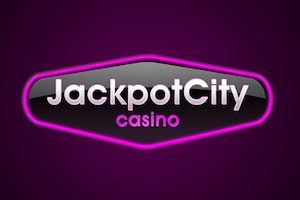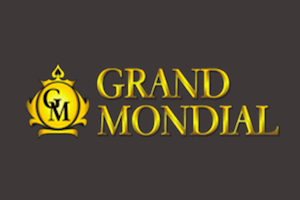
The short answer to this question is ‘yes, it is legal to play online casinos in Canada’. In this guide we explain why that is the case and recommend some of the best legal casinos for Canadian players.
First, let’s look at the types of site where bets can be placed, and explain how the law works in each case.
ONSHORE VS OFFSHORE CASINOS
If you are resident in Canada and you play at real money online casinos then you have two options open to you – regulated, onshore gambling sites under the ownership of the Governments of the Provinces, like PlayNow.com, or offshore sites licensed outside of Canada.
Offshore casinos are called that because their game and website servers are based elsewhere. They are still licensed but rather than by one of the Provinces, instead by one of several international jurisdictions, including Malta, Gibraltar and, slightly confusingly, the Mohawk Territory of Khanawake, which itself is independent of Canadian Law.
State-licensed gambling sites are clearly legal, but the offshore sites are widely regarded to offer a better gaming experience. They have a wider choice of games, more cashier options and bigger bonuses for new players.
The question is, can you legally play there?
The answer to that question is, of course, yes!
And here are the two key facts around betting at onshore vs offshore casinos:
- There is no law that states that Canadian citizens cannot place real money bets at offshore casino sites.
- It is also possible to bet online through onshore betting sites that are run by the governments of the provinces. But no gambling licenses are issued to private companies in the country.
By these two rules it is clear that online gambling is legal in Canada at EITHER onshore or offshore sites. It is also this rather paradoxical set of rules that has established Canada as a ‘grey market’ within the industry, falling somewhere between a regulated and an unregulated one.
3 OFFSHORE CASINOS OPEN TO PLAYERS FROM CANADA
These online casinos are legal for players in Canada. They are based and licensed offshore.
Payout Rate: 93.56%
Payout Rate: %
Payout Rate: %
REGULATED VS UNREGULATED GAMBLING MARKETS
Let’s explore that these terms in more detail.
In the online gambling industry there are two kind of markets – regulated and unregulated.
Regulated markets are those, like the UK for instance, where governments issue licenses to operators to take bets from customers residing in the state. The operator must pay for their license and adhere to strict guidelines on fairness, safety, security and responsible gambling, or risk losing their license or facing a fine. The government will also levy a tax on Gross Gaming Yield as part of this set up.
Unregulated markets are those where operators can take bets without a license or having to pay any tax to the local government.
Canada is regarded to be a ‘grey market’ because it falls somewhere between these two.
Once again …
No operators who have their game servers and business based in Canada can legally take bets within the country without a license. Whilst at the same time, operators with their business set-up OUTSIDE the country are free to take bets WITHOUT a Candian license.
AND therefore …
There is nothing to stop someone residing in Canada from placing a bet with a gambling operator who is based outside the country.
ONLINE GAMBLING LAW AND THE CRIMINAL CODE OF CANADA
So, how has this legal framework as it exists come into being? To understand that, we need to look at the Criminal Code.
The law as it relates to gambling in Canada, both online and offline, and where a criminal offence may take place, is codified in the Criminal Code of Canada, a document that was originally enacted in 1892.
Whilst the code initially defined gambling and taking bets as an illegal activity, over time exceptions have been created. In 1969 governments of each province were given the right to run lotteries as a way to raise funds, as well as the right to regulate gambling independently. This led to the establishment of land-based casinos across the country. Since then, the governments of the provinces have also been given the right to take bets through online games of chance, as long as these games are run by the governments themselves.
With these exceptions, over time, online gambling has become regulated in Canada.
Remember …
Importantly for those seeking to place their bets at offshore or unregulated casinos, at no point does the Criminal Code make this activity into a criminal offence.
THE PROVINCIAL GAMING AUTHORITIES IN CANADA
So, as we have established, the government of each of the ten provinces of Canada, under exceptions to the Criminal Code, has the right to set up its own land-based and online lotteries, land-based casinos and fixed odds online gaming sites.
To do so, each Province has established its own Gaming Authority. Here is the full list of ten.
- Alberta – Alberta Gaming and Liquor Commission
- British Columbia – BCLC
- Manitoba – Liquor and Gaming Commission of Manitoba
- New Brunswick – New Brunswick Gaming Control
- New Foundland – Service NL
- Nova Scotia – Alchohol, Gaming, Fuel and Tobacco Division Service of Nova Scotia
- Ontario – Ontario Lottery and Gaming Corporation
- Prince Edward Island – Prince Edward Island Lotteries Commission
- Quebec – Lotto Quebec
- Saskatchewan – Saskatchewan Liquor and Gaming Authority
The best of the gaming sites run by these authorities are PlayNow.com from the British Columbia Lottery Corporation (BCLG) and OLG.com from the Ontario Lottery and Gaming Corporation (OLG). Whilst these sites offer some of the same games as the offshore operators, even a cursory glance will tell you that a state-run casino does not boast the same glitzy experience as a privately-run site with blockbuster bonus offers and 1000s of games to choose from. This is why these up-market, offshore rivals continue to be the destination of choice for so many Canadian players.
IS GAMBLING LAW IN CANADA GOING TO CHANGE?
For the Canadian government there are two incentives to changing to a fully regulated framework in which offshore operators must be licensed to take bets from citizens within the country.
Firstly, it would allow the regulators in each province to levy a tax on all gaming yield from companies who currently take tax-free earnings out of the country. And secondly, it would allow these regulators to establish their own set of rules to protect their citizens from the harm caused by problem gambling. This would include regulation around deposit, stake and loss limits, similar to those being introduced in European countries.
Despite the potential advantages of moving towards a regulated environment, in the last decade there has been little momentum in that direction. This may be partly because groups like the OLG and BCLG do not want the competition from rivals with more sophisticated products and services.
However, whilst there is no expectation of imminent change to the federal law in Canada, it does seem that individual provinces may start to lead the way to an opening up of the online gambling market to the private sector in the future. In their 2020 budget, the government of Ontario set out plans to introduce legislation that would do just that, putting the role of market regulation under the Alcohol and Gaming Commission of Ontario (AGCO).
So, the message for now is … keep watching this space, and meanwhile gamblers in Canada remain free and uninhibited by law to gamble at any casino site, onshore of offshore.
Ready to play? Then check out our guide to the best legal online casinos in Canada.









